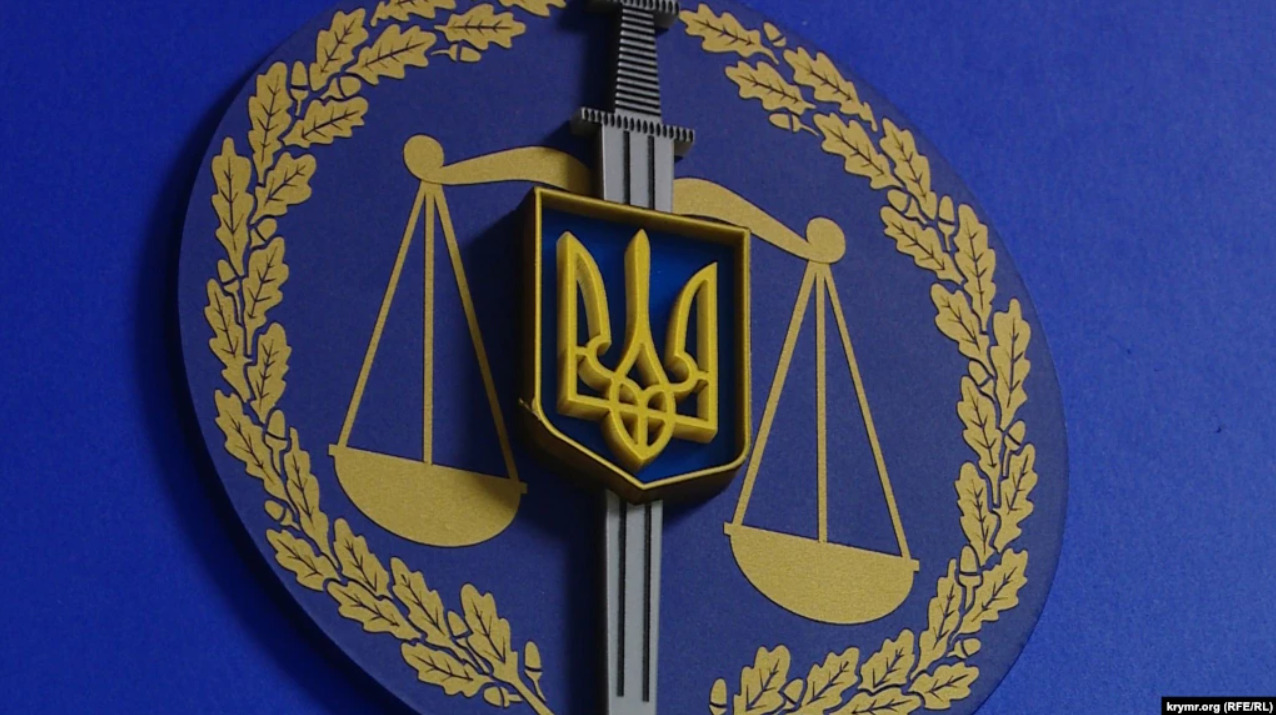Illegal "judge" Tatyana Balema from occupied Crimea faces 12 years for war crimes after expelling a Crimean resident from the peninsula.
The Prosecutor's Office of the Autonomous Republic of Crimea and the city of Sevastopol has submitted an indictment to a Ukrainian court against an illegal “judge” from the Russian-controlled so-called “Belogorsk District Court” under the article concerning violations of the laws and customs of war.
This information was provided by the press service of the Crimean Prosecutor's Office.

According to the agency's report, the accused was appointed as a “judge” in the unlawfully established “Belogorsk District Court” in 2014.
The Prosecutor's Office of the ARC emphasizes that in this position she “directly implemented the policies of the Russian Federation aimed at altering the demographic composition of the population of Crimea.”
“Knowing full well that the residents of the occupied peninsula are under the protection of international humanitarian law, in 2021, the accused made an unlawful decision to expel a citizen of Ukraine from Crimea, justifying it with the alleged “violation by a foreign citizen of the regime and terms of stay in the territory of the Russian Federation,” – states the Crimean Prosecutor's Office report.
The agency noted that the actions of the accused contradict the requirements of Article 49 of the 1949 Convention on the Protection of Civilian Persons in Time of War, which “prohibits, regardless of motives, the forced individual or mass transfer or deportation of persons from occupied territory.”
While the names of the individuals involved are not disclosed, an official who was not authorized to speak to the media and wished to remain anonymous informed Crimea.Reality that this concerns Tatyana Balema (Tetiana Balema).
If her guilt is proven in court, the woman faces up to 12 years in prison for an international crime, specifically under part 1 of Article 438 of the Criminal Code of Ukraine (violation of the laws and customs of war).
Additionally, as reported by the Prosecutor's Office of the ARC, an indictment against Balema is also pending in court under part 7 of Article 111-1 of the Criminal Code of Ukraine (collaborative activity).
It is known that since the beginning of the temporary occupation of Crimea, Russia has been pursuing an aggressive policy of colonization of the peninsula. From 2014 to 2021, estimates suggest that between 600,000 to 1 million citizens of the Russian Federation have illegally settled in Crimea. At the same time, tens of thousands of Ukrainian citizens have been forced to leave Crimea due to the “toxic” atmosphere on the peninsula and political repression, which predominantly affects Crimean Tatars and Ukrainians.
The occupying authorities also use their own migration legislation and legislation on administrative offenses, as well as the illegally established “courts” under their control on the peninsula as tools for such policies of forced expulsion.
The expulsion of the civilian population from the occupied territory by the occupying country constitutes a war crime. Human rights defenders and international law experts explain that since the onset of the temporary occupation, the legal regime of an international armed conflict has been in effect in the ARC of Crimea and the city of Sevastopol, and the laws and customs of war apply, as stipulated by international humanitarian law, specifically Article 42 of the Hague Regulations of 1907 and Article 2 of the IV Geneva Convention “On the Protection of Civilian Persons in Time of War.”
The Ukrainian authorities have announced plans for the de-occupation of Crimea. They have also repeatedly urged Russian citizens who have illegally settled in temporarily occupied Crimea to leave the peninsula while there is still an opportunity.
During the Crimean Platform summit in August 2022, President Volodymyr Zelensky expressed confidence in a prosperous future for Crimea following its de-occupation.
The Crimean Human Rights Group called on Crimeans to send documents and other evidence confirming the commission of crimes in occupied Crimea.
Recently, ZMINA reported that an electronic service called “You are in Ukraine” has been launched for Ukrainians living in temporarily occupied territories: it provides safety and resistance instructions and access to a quality VPN and secure browser.